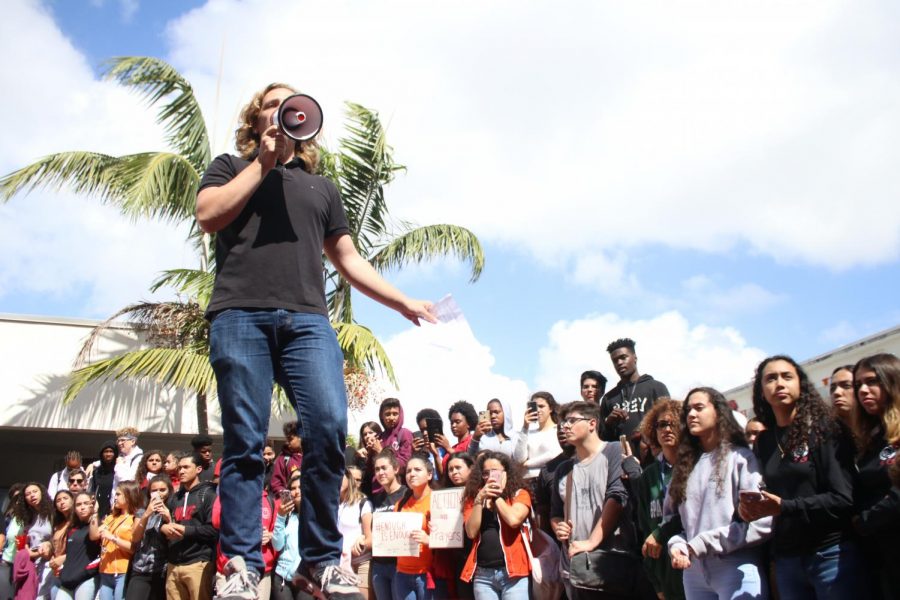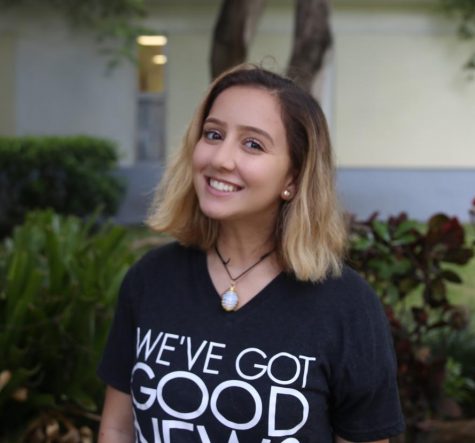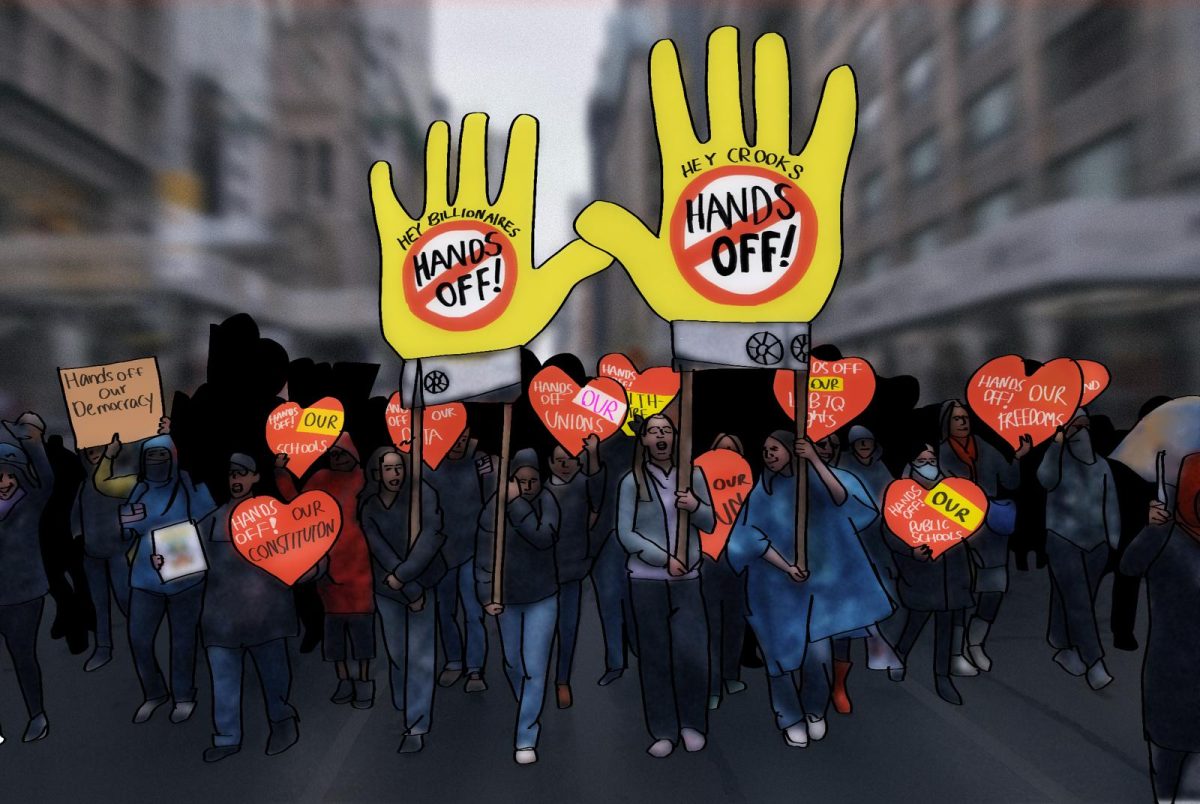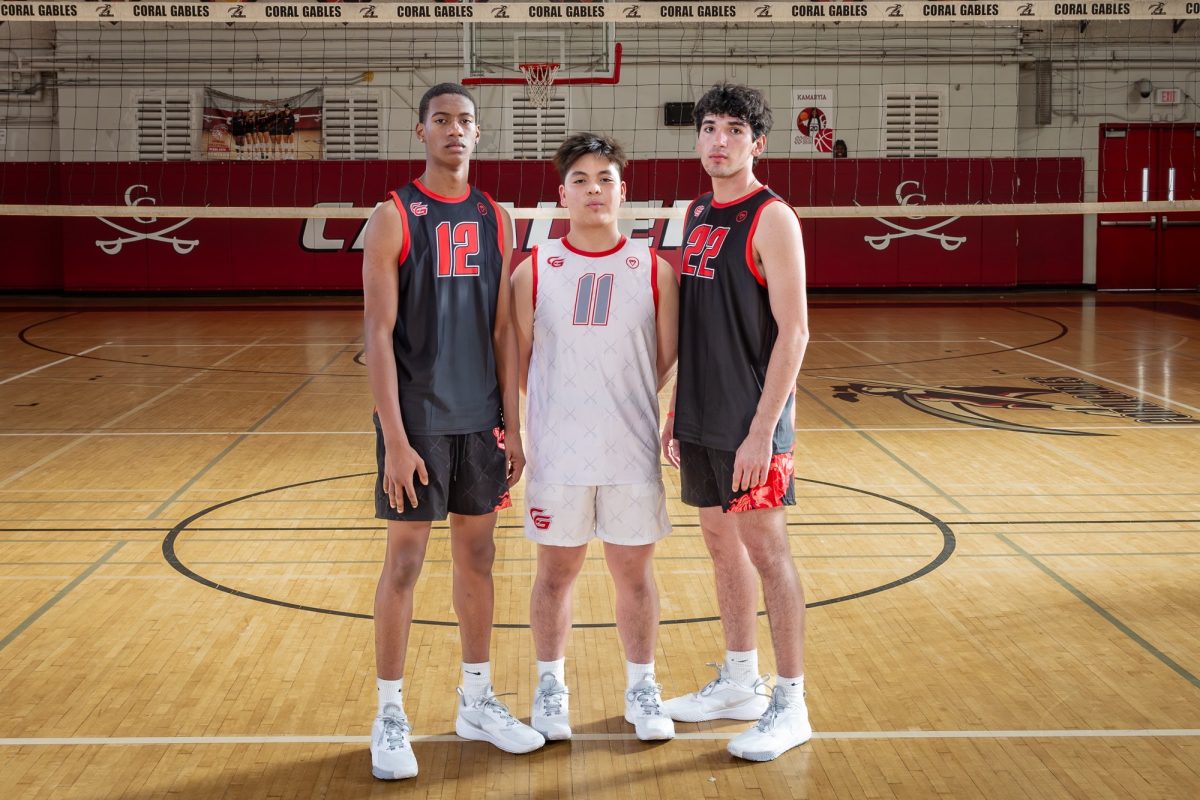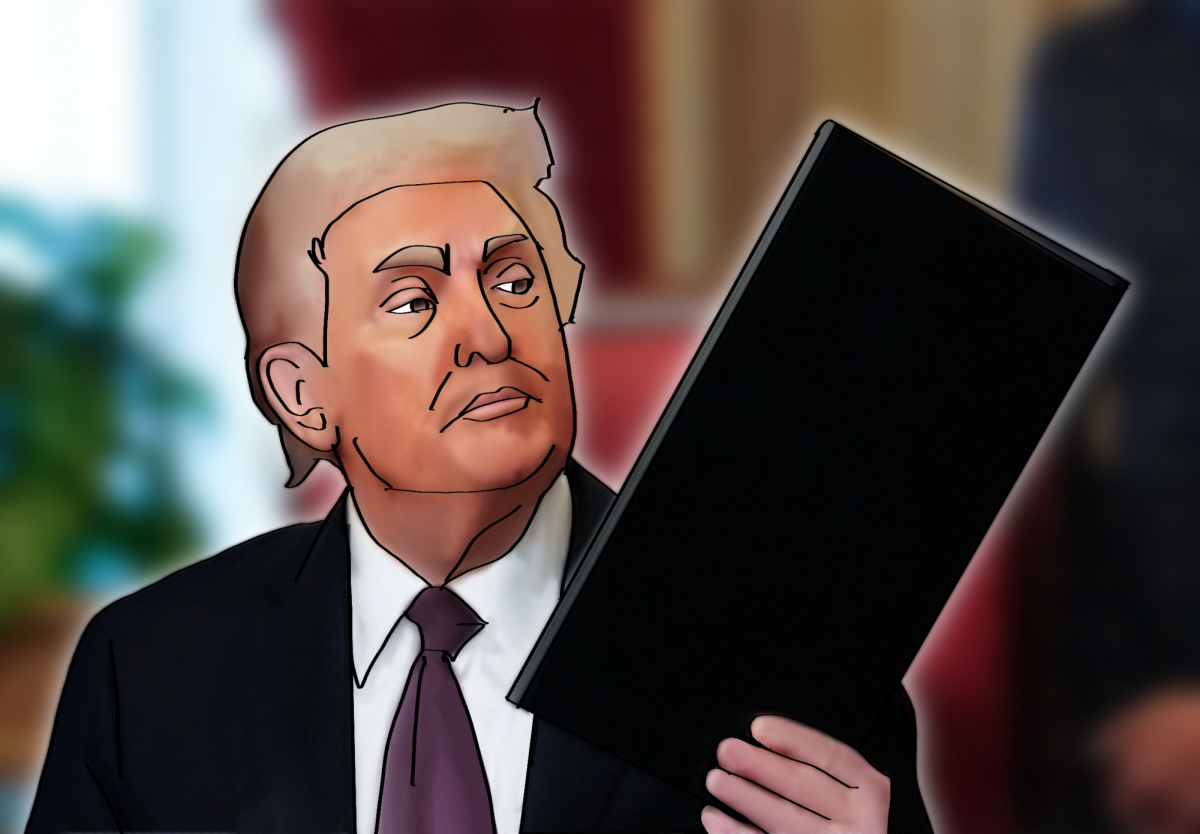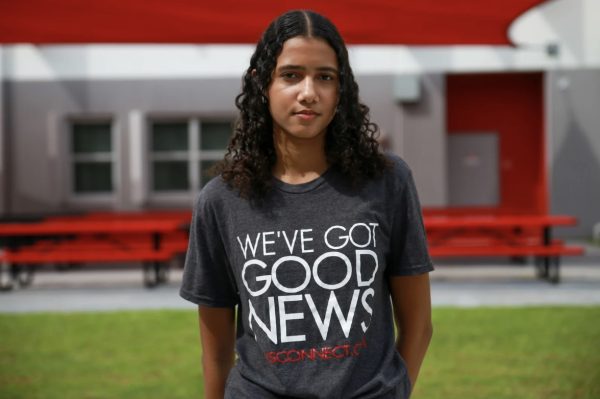Political Activity that Extends Beyond a Vote
Students protesting in front of the Ralph Moore Building.
Sep 21, 2018
We live in a politically turbulent time; from the local to the international level, many citizens have strong opinions about what our politicians are doing. There has been a recent emphasis on conversations surrounding the younger generation and how current politicians’ actions and decisions will affect them in the long run. That being said, there has been a wave of political activism and awareness among teens. Yet, many young people who are passionate about politics still believe that they cannot impact the government because of their age; to counter that misconception, here are some ways to be politically active from a young age, regardless of your political beliefs:
Join a Political Club:
This year, Gables has its first official political club: Political Activism and Civic Engagement (PACE). The club plans to provide a base for students who are interested in pursuing a career in politics by exposing them to live debates and speeches by politicians. PACE is also convenient for students who love politics and want to get connections to volunteer at campaigns or offices, eliminating any inertia students may be experiencing in their attempts to begin their civic engagement. If you are someone who is interested in the things that PACE has to offer, then you should stop by room 2109 on Tuesday, Oct. 9, at 2:30 p.m. for the first meeting of the year.
“PACE will unquestionably provide an outlet for the many students who have been launched into activism and want to divert energy into legislative change. As the club aligns with my interest in politics, I look forward to being an active member!” sophomore Aya Hamza said.
Volunteer at Political Campaigns:
With the current midterm elections, many students have also been volunteering at political campaigns. These students believe in the ideas proposed by certain candidates and want to see them in office. Although teenagers cannot vote, they can encourage those who can to put their candidate in office, changing the course of the elections. It is also a very good way to learn more about the democratic process because the volunteers get access to knowledge and experience that one cannot get through social media or news sites. Volunteering also establishes connections that may come in handy if one pursues a career in politics.
“Working on campaigns gives me experience, but I also get to give speeches for candidates, meet important people and get to know the residents of my community. It feels good to sit down and watch an election play out and be able to say ‘I’m a part of the reason why things turned out this way,'” junior Alexander Sutton said.
Protest:
If you are not interested in or are not able to support a candidate, but have one specific issue you care about, you can protest. Although many claim that protests do nothing to affect laws, they open dialogue about the subject in question and put it higher on lawmakers’ agendas. By talking about issues, they can be addressed by our politicians. Despite the effects of protests, many citizens still have a negative feeling about them for many reasons. If you are someone who dislikes protests or you want to be more precise when letting politicians know about issues that matter to you, a good option would be mailing your representatives. Not only is this quick and effective, but many letters sent to politicians about one issue will definitely have an impact on how they view and vote on certain things.
As teenagers, we have a special, civic, duty in our world. By being politically active, we can make a better world for when we become voting adults. Suffrage should not determine your ability to stay politically active; activism can begin at any age. As teenagers, we should start building our better world today, beginning with politics.



